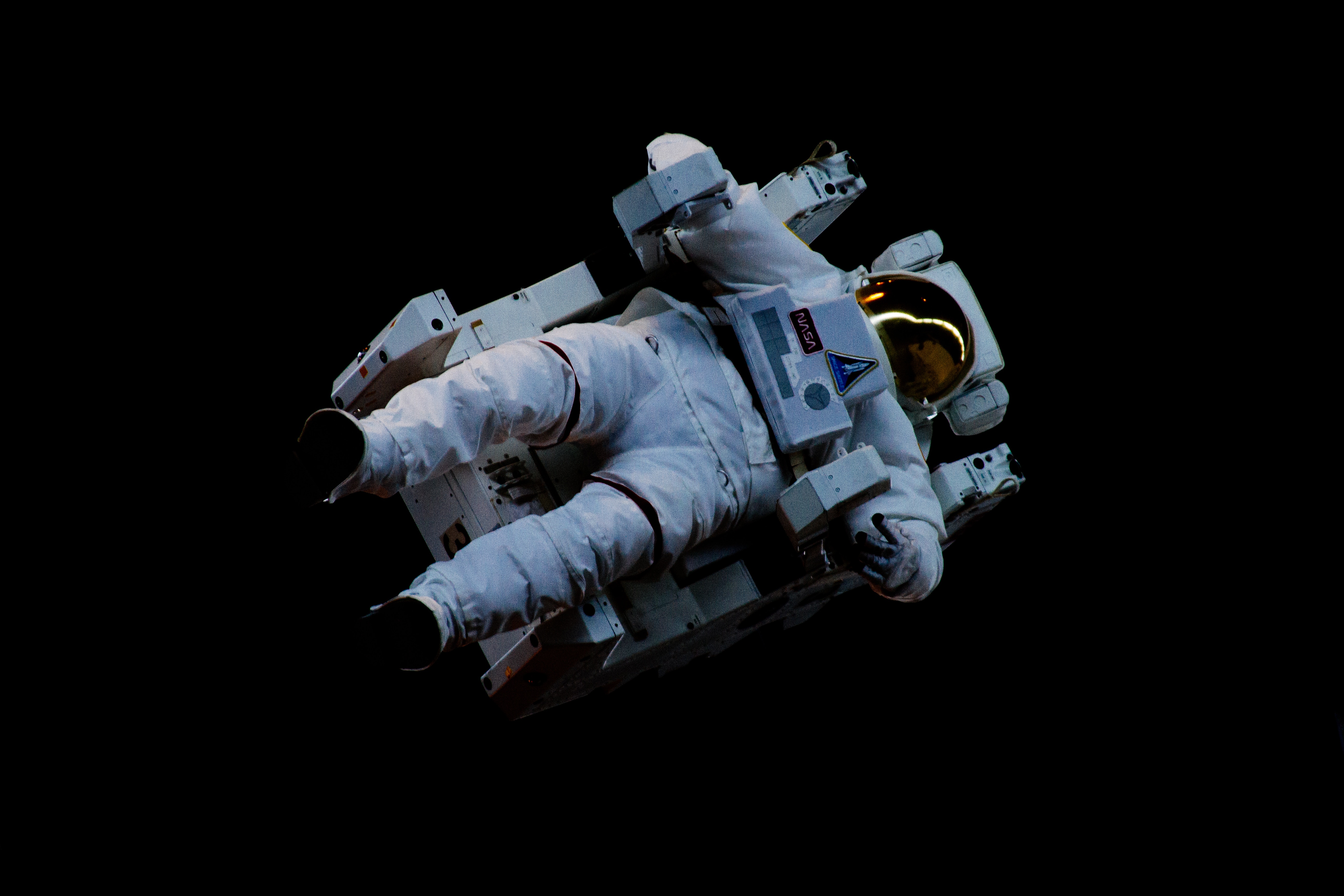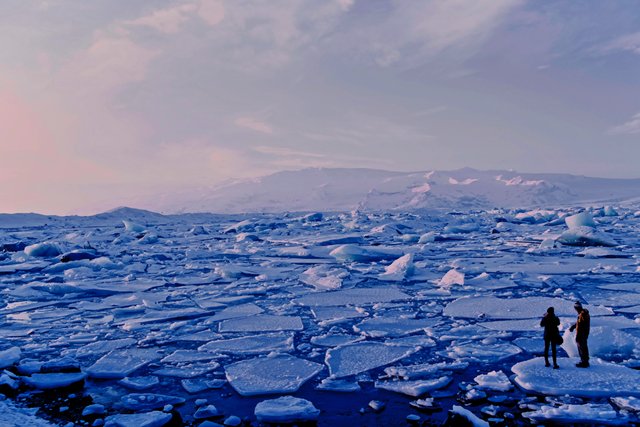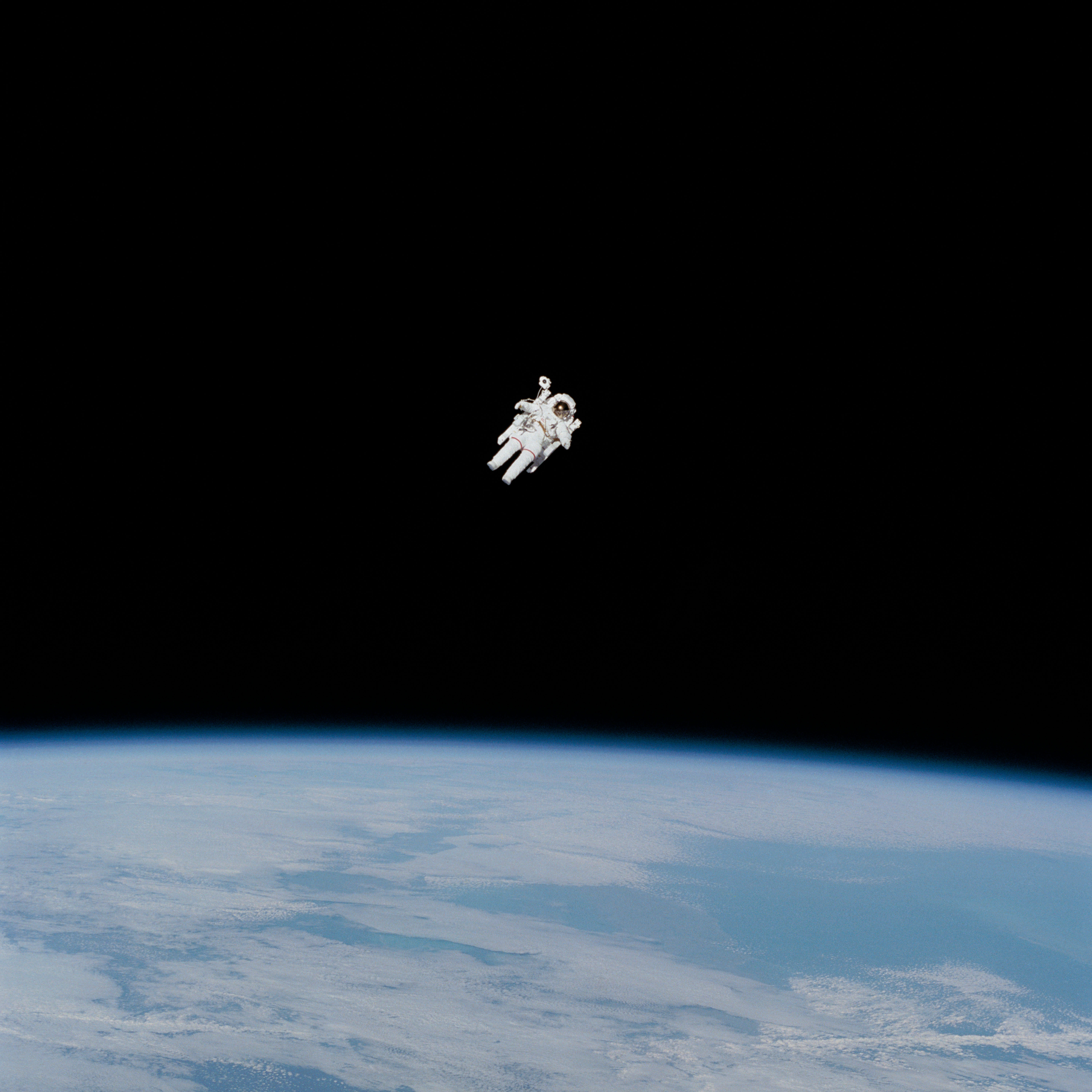Operating Manual for Spaceship Earth, a Summary of One of the Best Books You've Never Read
You Are an Astronaut...

...of Spaceship Earth.
Imagine whirling through space around the Sun when all of a sudden you hear…
Beep Beep Beep
You realize Spaceship Earth is overheating and its life support systems are at risk of failing.
What should you do?
The answer lies within Buckminster Fuller’s Operating Manual for Spaceship Earth. It’s time to start problem-solving!
Start With the Whole, Not the Parts
“Principle of the Universe: there is a fundamental advantage in any problem solving or critical thinking when one starts with the ‘whole’ or overview and then proceeds to the ‘parts’ or details.”
The Information Age has forced us to value specialization over generalization. However, the hardest problems for us to solve are complex and need a blending of these mindsets.
We must start general and then get specific. Bucky recommends we start problem-solving from the fully zoomed out vantage point.
If we are going to solve our Spaceship’s overheating problem, we first need to zoom out on a universal scale. Can we see anything beyond our solar system directly heating our planet?
No, we can’t. Let’s zoom in closer and look at our solar system.
Could our Sun be getting warmer?
According to scientific measurements, the Sun has been cooling since 1978. Our Spaceship doesn’t seem to be heating uncontrollably due to the Sun, so we must zoom into the Spaceship itself.
We, humans, tend to simplify complexity down to simple mental systems that are easily understood. Therefore, to make our Spaceship easier to comprehend, we break the whole system into four subsystems: the biosphere, hydrosphere, geosphere, and atmosphere:
- Biosphere: the sum of all ecosystems, which are unique to our planet.
- Hydrosphere: all the waters on the earth's surface, such as lakes and seas, and sometimes including water over the earth's surface, such as clouds.
- Geosphere: any of the almost spherical concentric regions of matter that make up the earth and its atmosphere, as the lithosphere and hydrosphere.
- Atmosphere: the envelope of gases surrounding the earth or another planet.
How do we affect these various subsystems? Could we be contributing to our Spaceship overheating?
Focus On What We Can Control
“Man is very vain; he likes to feel that he is responsible for all the favorable things that happen, and he is innocent of all the unfavorable happenings.”
We tend to focus on all the positives we’ve brought to our Spaceship including the scientific method and technology, however, it’s important to admit our faults.

We have looted and pillaged a large number of resources without the thought of long-term effects.
Should we focus on the past, or start figuring out how we can rectify the future?
“We have not been seeing our Spaceship Earth as an integrally-designed machine which to be persistently successful must be comprehended and serviced in total.”
Our ancestors have progressed through life using trial-and-error. Even the scientific method is systematized version of thoughtful trial-and-error for quantifying and understanding the natural world.
Unfortunately, much of our advancements have not valued the rejuvenation of resources within all four subsystems of the spaceship.
We are much like a bird within an egg. Within the egg, the bird is provided liquid nourishment to develop up to a certain point, but once exhausted, the bird breaks from its shell to reach its full potential.
Science has been telling us that our nourishment is being exhausted and if we don’t break our outdated habits, we’ll suffocate.
“It takes months to starve to death, weeks to thirst to death, and only minutes to suffocate.”
Upgrade Our Systems
We should never blame the negative actions of a good person acting confined within a bad system.
No human system is perfect and we need to constantly be upgrading outdated systems at a societal and biological level.
We have two upgrades that need to be implemented quickly.
A shift in understanding that homo sapiens are on the same biological team (and our tribalism that needs to establish a unifying purpose).
We need a new definition and system for wealth.
What do we all have in common? Our personal connection to Spaceship Earth and its subsystems.

If we strip away culture differences, we are hairless apes trying to survive and pass on our genetic material. To increase our chances of survival we established small tribes, but thanks to the internet, our tribes are now large and global.
We have two ways to view people different to us, with hostility or openness. Hostility leads to possessive aggregation of resources and tainted innovation for the destruction of others, whereas, openness and working together can create innovation for the benefit of all.
We need to find a way to establish Team Spaceship Earth if we want to fix our planet for future generations.
The fastest way to do this is through a new wealth system. Wealth is defined as the accumulation of perceived valuable possessions. This definition is possessive and doesn't include a rejuvenation mandate to fix our Spaceship.
Bucky redefines wealth as, “the number of forwarding days for a specific number of people we are physically prepared to sustain at a physically stated time and space liberating level of metabolic and metaphysical regeneration.”
Here the values of the system that can support the human species more than a system of people valuing the accumulation of the commonly understood valuable material.
Another definition worth noting is the 5 Capitals model:
- Financial Capital
- The Built Environment (Infrastructure)
- Intellectual Capital
- Social Capital
- Natural Capital
We need a balance of power between these 5 Capitals. It’s easy to get fixated on the accumulation of financial capital, however, if we neglect the others, the system will be weak and won’t support Bucky’s definition of wealth, which will lead to increased human suffering.
Maybe this is where Steem and the blockchain can shift the incentives structures of societies to value improving the planet and our social bonds?
“Gaia is a stakeholder too.” Maybe she needs a Basic Attention Token account for people to send her funds to keep her improving. We all know we use her but neglecter her needs all the time.
Natural Capital has the greatest buffer against human ills that makes it hard to comprehend its degradation. If we as individuals along with companies look at Planet Earth as our Spaceship, maybe we’ll realize that without continual maintenance the system will not sustain our species in the long run.
This is the true shift from short to long-term-thinking we need to implement to break free from our egg and fly.
Something You Can Try
I haven’t owned a car for almost 5 years. I sold it when I moved to SF and relied on drive sharing services and my own two feet for most things.
When I moved to LA, I had to have some sort of transportation, so I opted for a 100 mpg Vespa scooter, which costs about $14 a month for gas.
How was I able to do it? I chose to live close to work.
How much time do you spend driving to work each day? How can you shorten that commute to something walkable, bikeable, or scooter-able?
What would it take for you to not own a car and still live a good life?
Thanks for following along!
If we haven’t met yet, please leave me a comment so we can!
By the way, I’m Jon. Most of my time is spent on my AI company and meeting new people on Steemit. I have lots of hobbies like traveling, Brazilian Jiu Jitsu, gardening, cooking, reading and crypto - which I plan to share here. If any of these topics interest you, please let me know so we can chat more!
Cheers,

Jon
Follow me: @ucsdsu
P.S. Would you ever live without a car?
Photo creds:
- Photo by Niketh Vellanki
- Photo by Roxanne Desgagnés
- Photo by NASA
I still need to read this book...staring at me from my bookshelf right now...shame on me.
I thought it was a fresh perspective on how we got here. Similar to Sapiens, but from a systems point of view. It even has pirates!